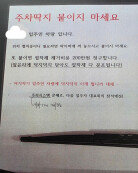Political gridlock affects economy
Political gridlock affects economy
Posted February. 06, 2025 07:46,
Updated February. 06, 2025 07:46
Consumer prices rebounded to 2% in January, a shift largely attributed to political instability following impeachment proceedings and the strong U.S. dollar. The rising won-dollar exchange rate, which led to a depreciation of the won, contributed to fluctuating consumer prices. In response, the South Korean government intervened to stabilize the currency, as the exchange rate fluctuated in the mid-to-high 1,400-won range. Meanwhile, the country’s foreign exchange reserves hit their lowest level in four and a half years.
Inflation, which had remained in the low-to-mid 1% range year-over-year since October 2024, surged to 1.9% in December following the declaration of emergency martial law. By January, inflation reached 2.2%, marking a return to the 2% range for the first time in five months. The rise in inflation coincided with increased global oil prices and currency volatility, pushing petroleum prices up by 7.3% and vegetable prices by 4.4%, with poor harvests that compounded supply pressures.
Fueled by inflation and political instability, economic uncertainty has weakened consumer confidence. The retail sales index fell 2.2% year-over-year, the sharpest decline in 21 years since the credit card crisis of 2003. The downturn has particularly impacted self-employed business owners. The number of self-employed people working without employees decreased in six years, as many have completely shut down businesses. Some have resorted to gig work, such as delivery services, to make ends meet.
A clear path forward remains elusive. The Trump administration’s tariff policies have raised fears of worsening inflation, prompting the Federal Reserve to halt interest rate hikes. In South Korea, the Bank of Korea is reluctant to lower interest rates due to concerns over capital outflows. The current interest rate spread stands at 1.5 percentage points, and a rate cut could push the won past the critical threshold of 1,500 won per dollar, driving up import costs. On the other hand, maintaining the current rate could further dampen domestic economic activity. The central bank faces a difficult balancing act.
Defending the exchange rate is becoming increasingly costly. Although South Korea has managed to keep its foreign reserves above the $400 billion mark, the reserves declined by $4.6 billion in just one month, signaling substantial government intervention in currency markets. With escalating trade tensions threatening exports and the trade balance, replenishing these reserves will not be easy.
Amid external economic uncertainties, fiscal policy remains one of the few available tools. Even though the ruling People Power Party and the opposition Democratic Party of Korea agree on the need for an additional supplementary budget to cushion the economic impact, political gridlock and mutual blame have delayed the approval process. As a result, valuable time is slipping away to implement regulatory relief measures and attract foreign investment, which could help stabilize both the exchange rate and inflation.







